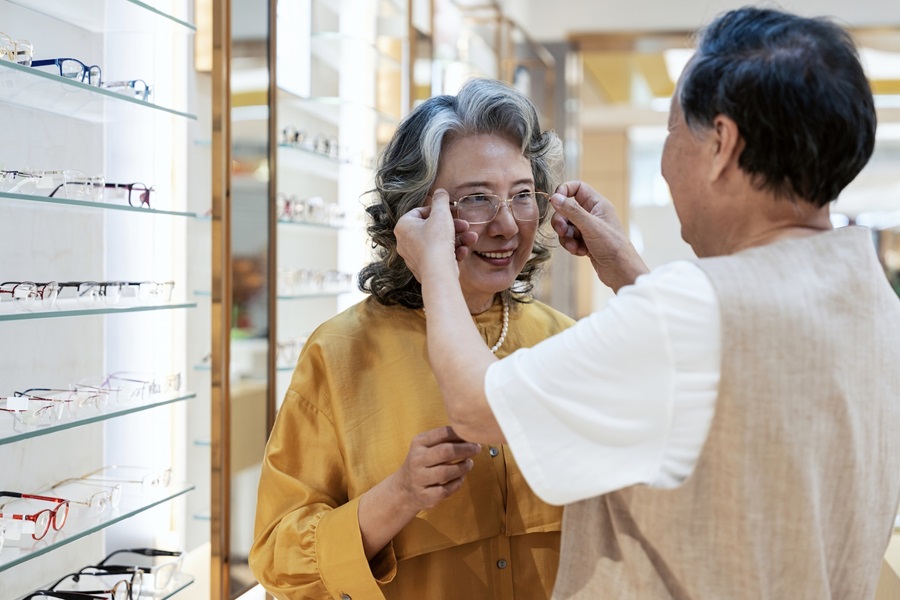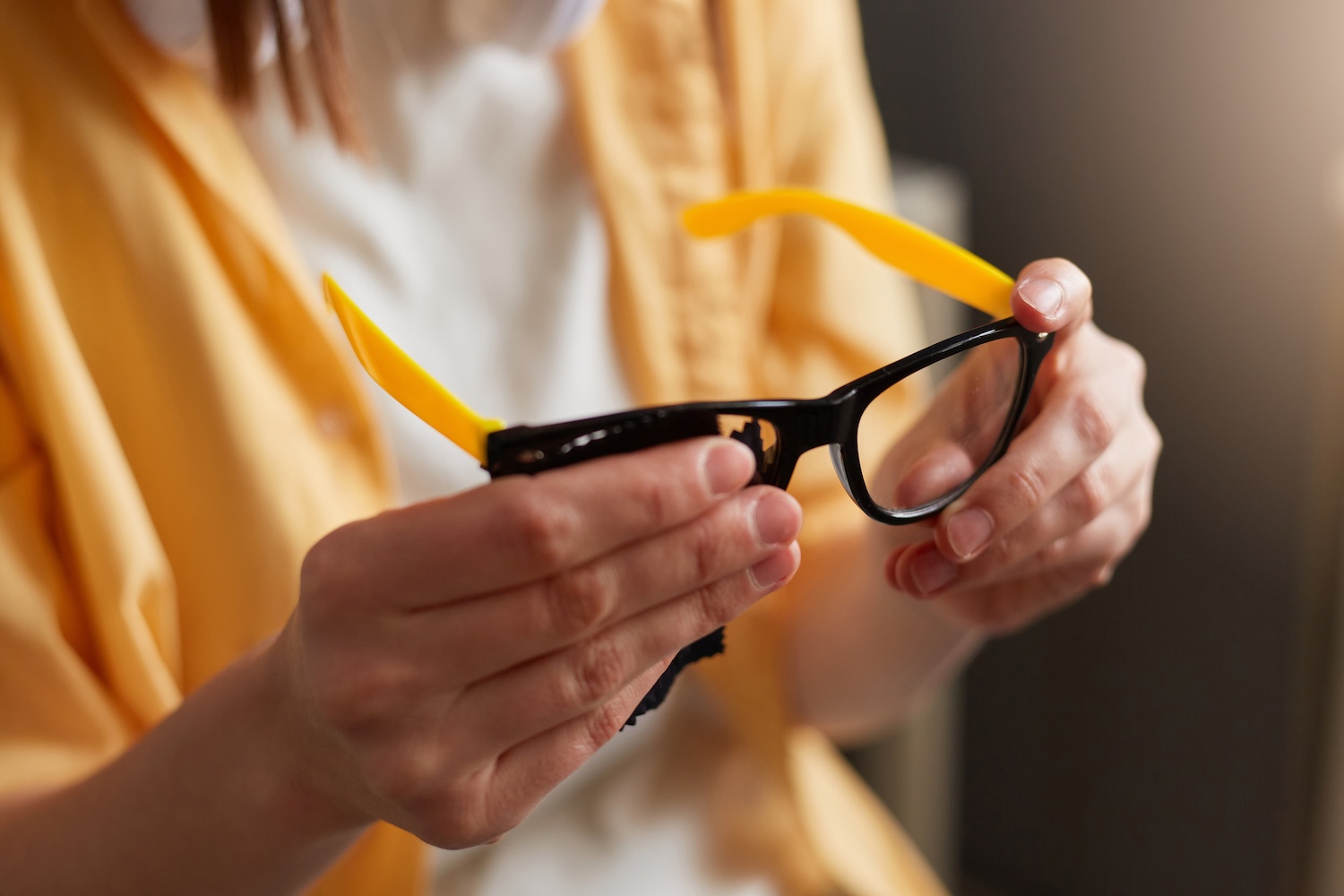- Home
- Mind & body
- Getting glasses for the first time?
At CBHS we help you manage your health challenges. We believe in offering you the services, support and tools you need to live your best life.
Health and Wellness Programs are available to support eligible members towards a healthier lifestyle. Each Health and Wellness Program is subject to its own eligibility criteria.
Contact us for more information and to confirm your eligibility for a program.
Getting glasses for the first time?

If your optometrist has told you that you need to get glasses or contact lenses for the first time, you’re not alone. According to a 2024 report from the Australian Institute of Health and Welfare, an estimated 56.7% of Australians (14.4 million) had at least one long-term eye condition. The most common conditions include long-sightedness, short-sightedness and astigmatism.
What to consider when buying prescription glasses
Your lens prescription will vary depending on your vision needs, lifestyle and eye health. It’s best to get your glasses from an optometrist as they can make sure they’re correctly fitted and provide the optimal vision and comfort.
Choosing frames
There are a variety of frame styles and designs to complement different face shapes. Good vision for life has a guide to choosing the best glasses to suit your face shape.
The frames can be made from a range of materials including plastic, metal, stainless steel and titanium. Titanium frames are usually the most expensive and are lightweight and durable. You may gravitate to designer options, however rest assured there are plenty of non-designer options that are well-priced and offer good quality. More expensive doesn't necessarily mean better!
Types of lenses
There are many different types of lenses available:
- Standard optical plastic lenses are the cheapest and made from lightweight plastic. They are good for single-vision low- or medium-strength prescriptions.
- Occupational lenses, those suitable for use at the office, work well if you spend a lot of time looking at a computer screen. The design allows for your vision to easily switch between looking at a screen and walking around the office.
- Aspheric lenses are thinner and flatter and reduce the appearance of “large-eye”
if you’re far-sighted, or “near-eye” if you’re near-sighted. - High-index lenses are thinner and lighter and work well for strong prescriptions.
- Multi-focal (progressive) lenses correct both near- and long-distance vision
and come in three different price ranges (basic, mid and top range).
It’s always a good idea to ask your optometrist for advice and to remember that buying the most expensive glasses doesn’t always mean they’re going to be the best quality.
Where can I find an optometrist?
When choosing an optometrist, it’s important you find a reputable provider licenced to practise and registered with the Optometry Board Australia.
While eye tests are usually covered by Medicare, if you need glasses, you may be able to claim 100% back on your CBHS Extras by choosing a provider in our Choice Network (depending on your level of cover and available limits). Our Choice Network partners are committed to providing exceptional value to our members.
With over 9,000 dental and optical providers, including popular retailers like Specsavers, the CBHS Choice Network means even better value and more choice for members. Read our article for more information on accessing savings with the Choice Network.
Caring for your glasses

Always carry your prescription glasses in a glasses case to protect them from accidental damage. It’s also important to not place them lens-down on a surface as this can result in scratched lens. Another tip is to keep an eye on the screws that hold the frame together and if one becomes loose, tighten it before it falls out. You should clean your glasses regularly with a lens cloth and a lens cleaner. It’s also important to always handle your glasses gently as it’s easy to bend the shape of the frames.
Should you consider contact lenses?
Contact lenses are small pieces of plastic that cover the eye and correct many vision problems. Most people who wear glasses can wear contact lenses. If you’re not comfortable wearing glasses, contact lenses might be a good option for you. If you do decide to get contact lenses, it’s important to get them from an optometrist as they can make sure you get the correct contact lens prescription.
Looking after your eyes
Whether you choose to wear glasses or contact lenses, there are things you can do to help care for and protect your eyes. These include:
- wearing sunglasses to protect your eyes from UV light
- avoiding looking directly at the sun
- avoiding rubbing or scratching your eyes
- eating a healthy diet full of antioxidants
- using eye protection if you work in environment where there’s a risk of getting something in your eye
- avoiding smoking as it’s linked to several eye conditions
- getting an advanced 3D OCT scan to detect potential eye health issues. Our Choice Network partner Specsavers includes a free advanced 3D OCT scan with all comprehensive eye tests.
More information
- Healthdirect Eye care
- Optometry Australia Good vision for life
- CBHS Eye health
Sources
https://www.aihw.gov.au/getmedia/6b19e493-0ebe-420f-a9a3-e48b26aace9f/aihw-aus-249-ib.pdf
https://goodvisionforlife.com.au/better-vision/glasses/
https://www.optometryboard.gov.au/Registration
https://www.optometry.org.au/find-an-optometrist/
https://www.cbhs.com.au/tools-and-support/find-a-provider
https://goodvisionforlife.com.au/better-vision/contact-lenses/
https://www.specsavers.com.au/eye-tests/oct
https://www.healthdirect.gov.au/eye-care
https://goodvisionforlife.com.au/your-vision/
https://www.cbhs.com.au/specsavers
All information contained in this article is intended for general information purposes only. The information provided should not be relied upon as medical advice and does not supersede or replace a consultation with a suitably qualified healthcare professional.
Health and wellbeing
programs & support
You Belong to More with CBHS Hospital cover:
- Greater choice over your health options including who treats you
- Get care at home with Hospital Substitute Treatment program
- Free health and wellbeing programs to support your health challenges
Live your healthiest, happiest life with CBHS Extras cover:
- Benefits for proactive health checks e.g. bone density tests, eye screenings
- Keep up your care with telehealth and digital options
- Save on dental and optical with CBHS Choice Network providers
